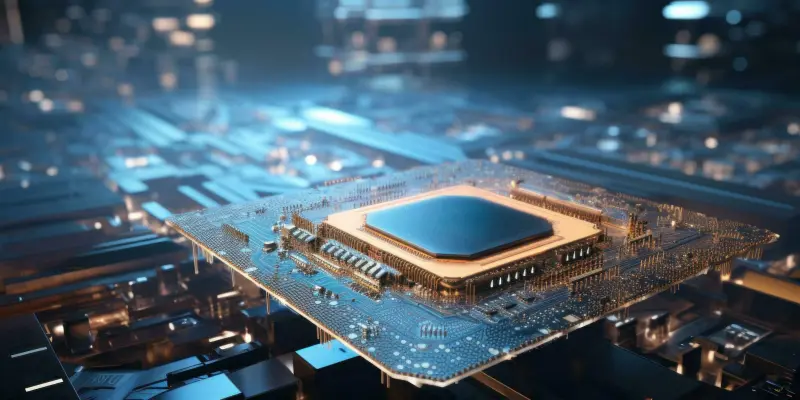Nvidia has announced plans to shift the production of its AI supercomputers entirely to the United States, reflecting a broader industry trend towards domestic manufacturing in response to favorable US trade policies. This strategic move involves partnerships with significant manufacturers, with Nvidia’s advanced Blackwell chips produced at TSMC facilities in Phoenix, Arizona, and supercomputer assembly operations being established in Texas by Foxconn in Houston and Wistron in Dallas. The project spans more than a million square feet, with operations set to commence mass production within 12 to 15 months.
Strategic Shift in AI Manufacturing
Enhanced Supply Chain Resiliency
Nvidia’s decision to localize the production of its AI supercomputers within US borders represents a notable shift in the company’s manufacturing strategy. By establishing partnerships with prominent manufacturers and setting up extensive production facilities in Arizona and Texas, Nvidia aims to fortify its supply chain and enhance its operational resiliency. The production of advanced Blackwell chips at TSMC facilities in Phoenix serves as a cornerstone of this strategy, ensuring that Nvidia’s cutting-edge AI technology remains at the forefront of innovation.
To address the inherent complexities associated with manufacturing AI chips and supercomputers, Nvidia has entered into collaborations with companies such as Amkor and SPIL for packaging and testing in Arizona. This collaboration underscores Nvidia’s commitment to maintaining the highest standards of quality and efficiency in its manufacturing processes. By consolidating various stages of production within the United States, Nvidia is poised to mitigate risks associated with global supply chain disruptions, thereby ensuring a steady and reliable supply of AI infrastructure.
Meeting Skyrocketing AI Demand
Jensen Huang, Nvidia’s CEO, highlighted the strategic importance of this move in response to the escalating demand for AI technologies. As AI continues to permeate various sectors, from healthcare to finance, the need for robust and scalable AI infrastructure has never been more critical. Nvidia’s ambitious plan to produce up to $500 billion worth of AI infrastructure within the next four years reflects the company’s dedication to addressing this demand and solidifying its position as a leader in the AI industry.
The decision to shift production to the United States was further facilitated by a deal that allowed Nvidia to sidestep potential export restrictions on its advanced ##0 chip. By securing a domestic manufacturing agreement, Nvidia ensured that the ##0 chip could be exported to China without hindrance. This move not only circumvents regulatory challenges but also positions Nvidia to capitalize on the lucrative Chinese market, reinforcing its global competitive edge. Additionally, former President Trump’s influence in encouraging TSMC to establish fabrication plants in the US has played a pivotal role in enabling this transition.
Impact on AI Supercomputing and Infrastructure
Foundation for AI Factories
Beyond the logistical and regulatory advantages, Nvidia’s localization strategy holds profound implications for the future of AI supercomputing. By producing AI supercomputers domestically, Nvidia aims to power “AI factories”—state-of-the-art data centers specifically designed to handle AI workloads. These AI factories are expected to operate at gigawatt-scale, accommodating the growing computational demands of AI-driven applications and services. The integration of Nvidia’s Omniverse platform into these AI factories will facilitate the creation of digital twins, enabling more precise planning and optimization of production processes. This technology will allow for a virtual replication of the physical infrastructure, streamlining operations and enhancing efficiency. Furthermore, the deployment of Isaac GR00T robots will revolutionize manufacturing workflows by automating various tasks, thus reducing human error and increasing productivity.
Transforming Industrial Operations
The establishment of these AI factories heralds a new era in industrial operations, where the synergy between AI and robotics will drive unprecedented levels of efficiency and innovation. Nvidia’s commitment to integrating advanced AI technologies into its manufacturing processes underscores the potential for AI to revolutionize not just the tech industry but the broader industrial landscape. This shift signifies a move towards a more automated, data-driven approach to manufacturing, where intelligent systems optimize every aspect of production.
The implications extend far beyond Nvidia’s immediate operations, as the adoption of AI-driven manufacturing practices could serve as a blueprint for other industries. By demonstrating the tangible benefits of AI integration in manufacturing, Nvidia is setting a precedent for how technology can reshape traditional industrial paradigms. This development is likely to spur further innovation and investment in AI-driven solutions, fostering a more resilient and dynamic industrial ecosystem.
Future Considerations
Nvidia has revealed its plans to transfer the production of its AI supercomputers exclusively to the United States, mirroring a growing industry trend towards domestic manufacturing encouraged by favorable US trade policies. This strategic initiative includes collaborations with notable manufacturers. Nvidia’s sophisticated Blackwell chips will be produced at TSMC facilities situated in Phoenix, Arizona. Additionally, the assembly of these AI supercomputers will take place in Texas, with Foxconn handling operations in Houston and Wistron in Dallas. This extensive project spans over a million square feet. Mass production is expected to begin within 12 to 15 months. This move underscores Nvidia’s commitment to bolstering US-based production capabilities while capitalizing on the supportive trade environment. This strategic shift aims to enhance production efficiency and strengthen US technological infrastructure, ensuring a more streamlined process from chip manufacturing to final assembly, thus reinforcing the company’s competitive edge in the AI technology market.

